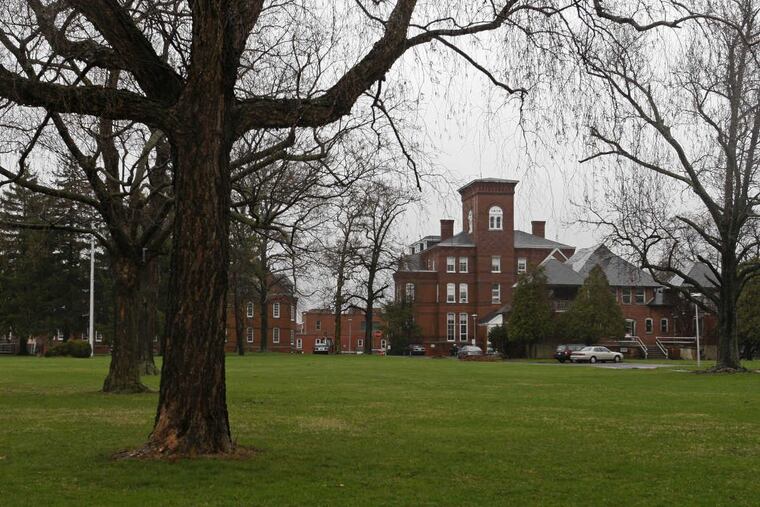Community setting for some Norristown State Hospital psychiatric patients: Another building on the campus
The Pennsylvania Department of Human Services decided to close the civil unit at Norristown State Hospital to give patients the chance to live fuller lives in the community. It turns out for some, the community is another building on the Montgomery County campus.

When the Pennsylvania Department of Human Services announced plans in January to close the civil unit of Norristown State Hospital, the goal was to "serve more people in the community" and "reduce reliance on institutional care," officials said.
It turns out that the community setting for 16 of the severely mentally ill patients at Norristown, at least temporarily, will be another building on the campus.
"It seems kind of funny to move from Building 10 to Building 9 and call it a move to the community," David Bolin, whose daughter is among the patients scheduled to be moved at the beginning of December, said Tuesday. His daughter has already been moved to a temporary facility.
Bolin, who spent 30 years working for a tax-exempt organization that provided community-based services to elderly, mentally ill, and intellectually and developmentally disabled individuals, said he has many questions about the new program and still worries that his daughter could be involuntarily discharged and end up at Wernersville State Hospital, west of Reading.
The Human Services Department did not respond this week to requests for comment.
The transition at Norristown is happening against the backdrop of a legal settlement with the American Civil Liberties Union of Pennsylvania in early 2016 that required the state to provide more treatment slots for criminal defendants who have been declared incompetent to stand trial.
Lack of progress in reducing treatment delays led to a second settlement in June that gave the state six months, until Dec. 15, to provide 50 beds for the treatment of criminal defendants at Norristown by creating 28 new beds and converting 22 civil beds.
"The wait list in the last month has been from 252 to 268 to get into treatment. That is 20 percent more on the wait list than they've got total slots. They have to add forensic beds," said Witold Walczak, legal director for the ACLU of Pennsylvania and one of the lawyers involved in the settlements.
State officials on Tuesday met with mental-health advocates to update them on the changes at Norristown.
"I expressed my concerns that this isn't really full deinstitutionalization," said Joseph Rogers, a consultant on advocacy and policy for the Mental Health Partnership, a Philadelphia nonprofit. "To just move people from one building to another building is not fully moving people out of the institution."
Rogers said state officials told him there was no limit on how long a patient can stay in the new 16-bed facility, which will be run by Elwyn, a large human-services provider.